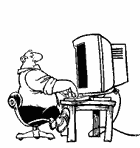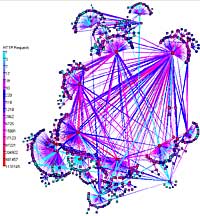
60. Toward a New Millennium

The last decade of the 20th century was marked with dizzying change for the United States. With the Soviet Union out of the picture, American diplomats sought to create a "new world order" based on democracy, free-market capitalism and the Western lifestyle.
Challenges from abroad did not disappear with the end of the Cold War. The invasion of Kuwait by Saddam Hussein's Iraq threatened a major percentage of the world's oil reserves. In the largest American military operation since the Vietnam War, the United States led a multinational force in the liberation of Kuwait.
The collapse of the Cold War in Yugoslavia allowed centuries of hatred between rival ethnic groups to bubble to the surface. The term "ethnic cleansing" was applied to the process of removing an entire nationality out of a particular territory by threats, violence, or genocide. The United States contributed blue-helmet peacekeeping troops to Bosnia to end ethnic cleansing and committed air support to Kosovar Albanians who faced the same fate.
American troops were used to provide food to starving civilians in war-torn Somalia, to restore a democratically elected president to Haiti, and to bomb suspected terrorist bases in Sudan and Afghanistan.

Carrying portraits of the dead through the streets, young villagers mourn the massacre of 41 ethnic Albanians in the village of Cuska, Kosovo by Serbian security forces.
Americans began to think of themselves as peacekeepers of the world.
As both parties moved to the center to claim the largest numbers of American voters, bitter partisanship emerged. Voters punished the Republicans by voting against George Bush in 1992. After two years of Bill Clinton, voters punished him by turning the House and the Senate over to the Republicans. A bitter partisan struggle emerged over the personal sexual improprieties of Clinton in 1998, leading to an impeachment vote largely along party lines. Although disgusted with Clinton's behavior, voters punished overzealous Republicans by trimming their majority in Congress in 1998.
The 1990s marked a revolution in communications. Individual use of the Internet mushroomed from a handful of scientists and professors at the beginning of the decade to becoming widespread by the year 2000. Companies regeared their approaches for online commerce. Electronic mail was a common new form of communications between relatives, friends, and colleagues. Satellite dish networks challenged cable companies for business in telecommunications.

Although many efforts have been made to illustrate the World Wide Web, the so-called "Information Revolution" is so new and has evolved so rapidly, the illustrations usually convey only complexity and chaos.
The United States entered the 21st century as the leading users of Internet and satellite technology. These devices opened new windows of opportunity to spread American culture across the globe. Vietnamese in Hanoi were wearing Tommy Hilfiger shirts, Russians were downing Big Macs in Moscow, and Nike sneakers were being made in sweatshops around the world. American products and culture were being spread around faster than a computer virus.
The 20th century had been dubbed by many as "the American Century." Would the 21st Century also be an American century? Or will the United States be eclipsed by new superpowers like China or the European Union? Only time will reveal the answers.





